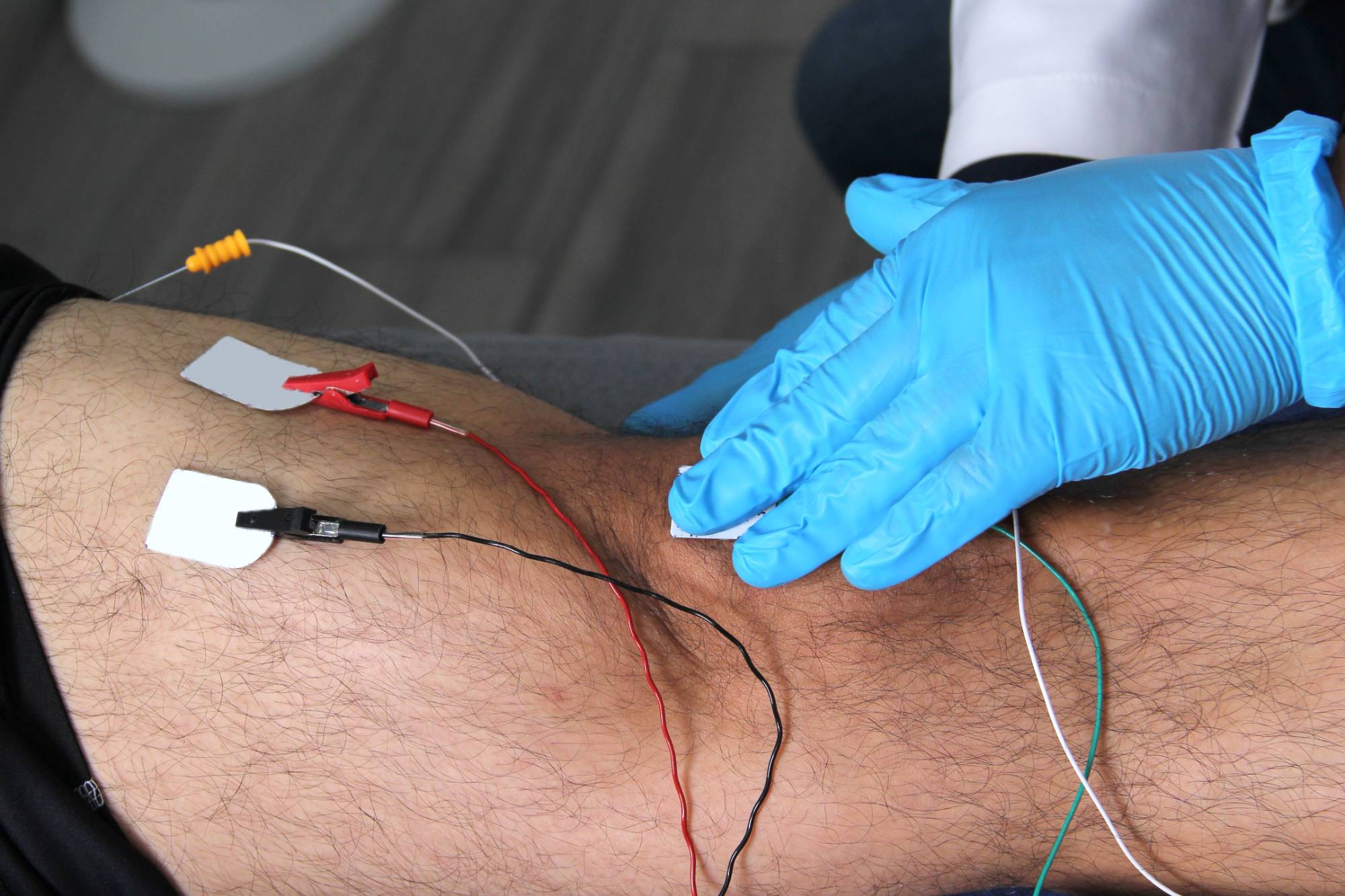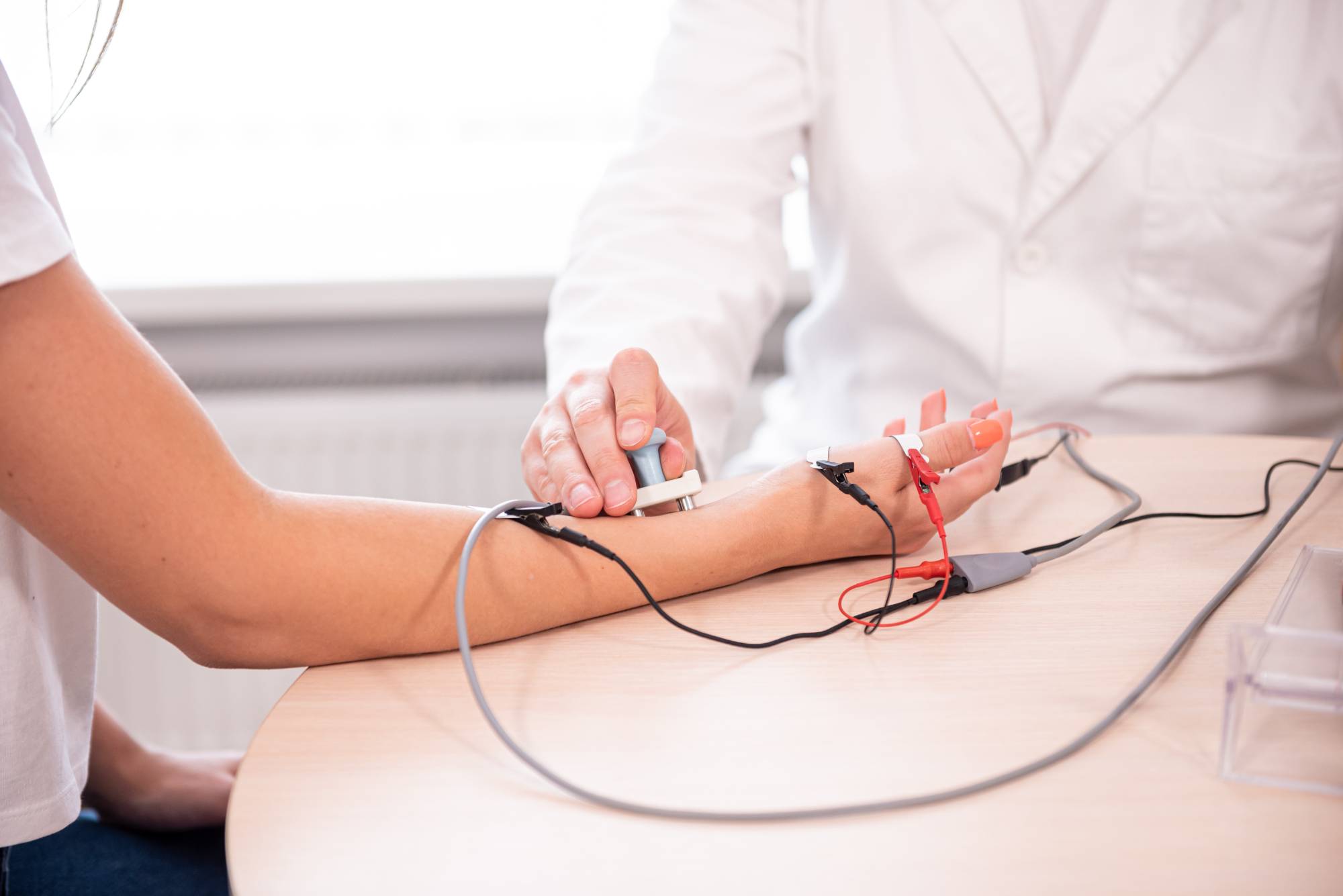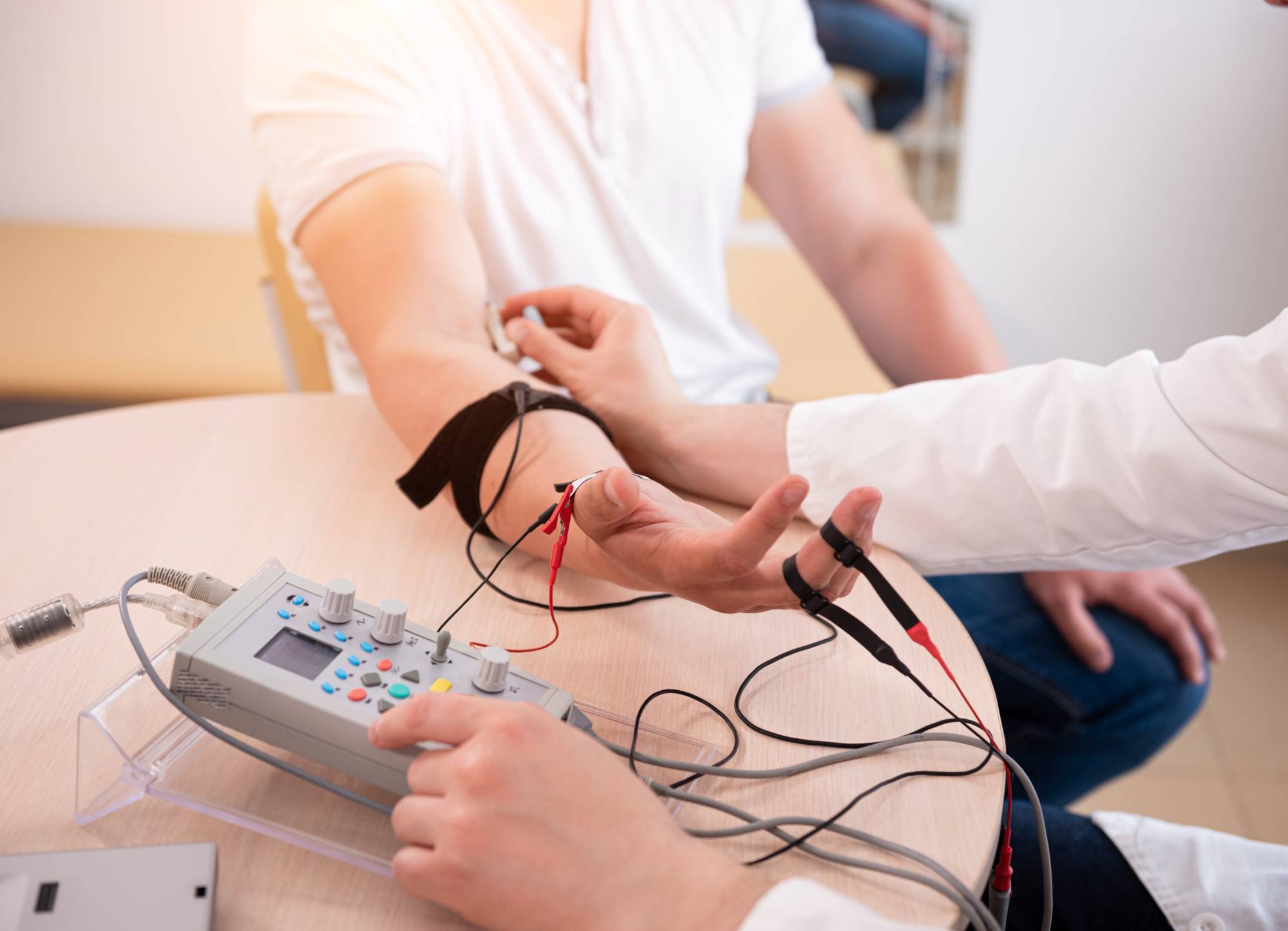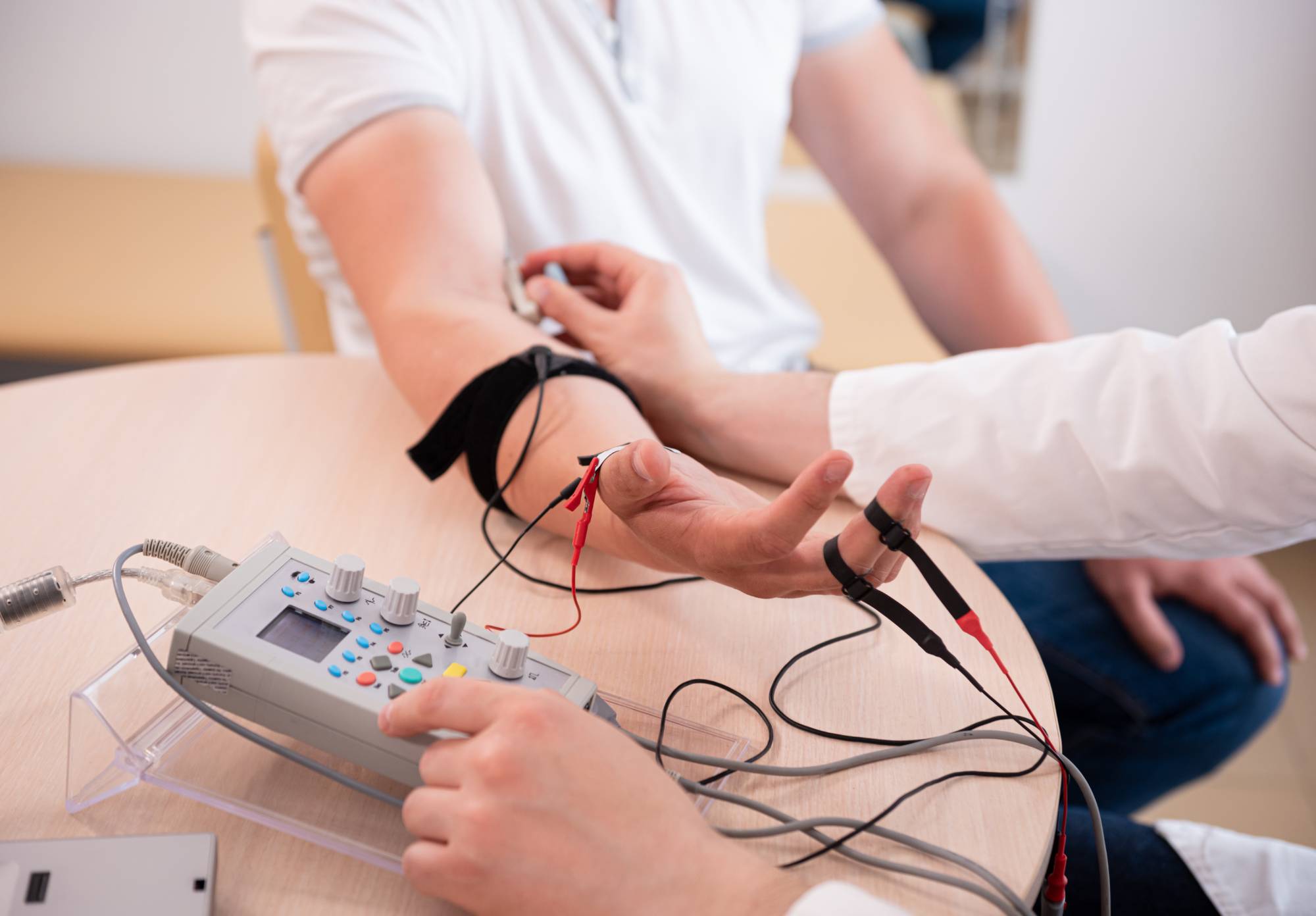Professional electromyography testing that pinpoints exactly what’s causing your symptoms.

Reviews

You’ve been dealing with numbness, tingling, or muscle weakness for weeks or months. Your primary care doctor suspects a nerve problem, but you need definitive answers.
EMG testing gives you those answers. This diagnostic procedure measures the electrical activity in your muscles and nerves, revealing exactly where the problem lies and how severe it is.
No more guessing. No more wondering if it’s serious. You’ll walk away with clear results and a path forward for treatment.
NY Spine Medicine has been providing comprehensive spine and nerve care to Florida patients for years. We combine advanced diagnostic capabilities with the experience to interpret results accurately.
When you’re dealing with nerve-related symptoms, you want specialists who’ve seen it all. Our physicians have diagnosed and treated thousands of patients with similar conditions.
Located conveniently for Keystone Islands residents, our facility offers the advanced testing you need without the hassle of traveling to major metropolitan areas.

Your EMG test starts with a consultation where our physician reviews your symptoms and medical history. This helps target the testing to your specific concerns.
The nerve conduction study comes first. Small electrodes are placed on your skin, and mild electrical impulses measure how well your nerves transmit signals. This part takes about 15-20 minutes.
Next is the electromyography portion. A thin needle electrode is inserted into specific muscles to measure electrical activity. While this sounds uncomfortable, most patients describe it as similar to getting blood drawn. The entire process typically takes 30-60 minutes, depending on how many areas need testing.

Ready to get started?
Your EMG testing includes both nerve conduction studies and electromyography to give a complete picture of your nerve and muscle function. The testing can identify conditions like carpal tunnel syndrome, pinched nerves, peripheral neuropathy, and muscle disorders.
Results are available immediately after testing. Our physician will explain what the findings mean in plain language and discuss treatment options. You’ll receive a detailed report to share with your referring doctor.
The testing is performed using advanced equipment that provides precise measurements while minimizing discomfort. Most patients are surprised by how tolerable the procedure is compared to their expectations.

New York:
Florida:
Support